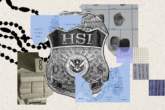December 14, 2020
Enacting Reforms for the Department of Homeland Security
On November 20, 2020, Chairman Bennie Thompson and fellow Democrats on the House Committee on Homeland Security introduced bill H.R. 8791 to reform the Department of Homeland Security (“DHS” or “department”). As part of its reforms, H.R. 8791, or the DHS Reform Act of 2020, focuses on improving oversight, accountability, and transparency. Several of the proposed legislative reforms track recommendations made by outside expert reviews, including a May 2020 report published by the Center for a New American Security (CNAS), Reforming the Department of Homeland Security Through Enhanced Oversight and Accountability, which focuses specifically on the themes of oversight, accountability, and transparency, as well as a report published by the Atlantic Council this year, which comprehensively addresses modernizing DHS. This commentary highlights those aspects of the proposed legislation that are specifically focused on improving oversight, accountability, and transparency.
The DHS Reform Act of 2020 prescribes management and structural changes to the department. Given its size and scope of responsibilities, DHS would benefit from additional leadership capacity at its headquarters. Accordingly, the bill creates the position of Associate Secretary of Homeland Security. A Senate-confirmed position, the Associate Secretary would be the third-highest ranking official in the department and would manage DHS’s entire law enforcement enterprise, including U.S. Immigrations and Customs Enforcement, U.S. Customs and Border Protection, United States Secret Service, and Federal Protective Services. In addition to augmenting its leadership capacity, DHS also needs greater leadership accountability. Consequently, the bill requires that the Officer for Civil Rights and Civil Liberties (CRCL) be a career appointee rather than a political appointee. It also clarifies and expands the duties of the CRCL Officer to include incorporating civil rights and liberties into all aspects of the department, specifically in its programs and activities.
Given its size and scope of responsibilities, DHS would benefit from additional leadership capacity at its headquarters.
The bill makes specific efforts to break down cultural silos in the department and increase jointness across historically autonomous agencies. By creating councils and programs meant to increase departmental coordination, the proposed legislation takes significant steps toward disbanding these cultural silos. To that end, the bill creates a department-wide Leadership Council, which would coordinate and improve DHS programs and activities. Other department-wide and cross-departmental councils the legislation proposes to form include a Privacy Working Group, a Counterterrorism Advisory Board, a Joint Requirements Council, a School Security Coordinating Council, and an Acquisition Review Board. To further increase jointness, the bill establishes a rotational program for members of the Coast Guard and the Cybersecurity and Infrastructure Security Agency to detail to the other agency to focus on a different aspect of DHS’s work on cybersecurity. It also creates an Intelligence Rotational Assignment Program as well as adjusts existing rotational programs to facilitate intra-departmental assimilation. By substantially integrating these structural changes into the bill, the House Committee on Homeland Security is taking important steps toward improving DHS coordination across substantive areas and responsibilities.
Meant to advance effective management of and accountability within the department, the bill establishes or amends the responsibilities of several positions, including by charging the head officer with creating and implementing procedures relevant to the duties of the office. Positions with amended responsibilities include the Chief Privacy Officer, Chief Financial Officer, Chief Information Officer, Chief Procurement Officer, Chief Security Officer, and the Chief Human Capitol Officer. The bill further instructs individual offices to produce or update specific policies geared at increasing department and employee accountability. This includes requiring the Homeland Security Advisory Council to create a policy regarding conflicts of interest; the Office of Public Affairs to craft and disseminate a code of conduct for anyone involved in public affairs as well as circulate instructions for the review of all public materials; the Secretary to issue instructions to prevent propaganda in both internal and external materials; and the Under Secretary for Management to create procedures for managing the acquisition workforce, update policies on officer use of force to include de-escalation training, and fashion a departmental social media policy.
The bill provides some degree of transparency about the policies described above. The new legislation would oblige “the Office of Inspector General to publish reports, reviews, inspections, and audits including those involving whistleblower retaliation, or misconduct by a member of the Senior Executive Service or politically appointed official.” CRCL is also directed to publicly release any findings or recommendations from an investigation conducted by the office. Beyond this, the bill does not advance transparency with regard to publicly releasing department-wide or office-specific policies.
While the DHS Reform Act of 2020 is a good start on improving oversight and accountability for the department, there are additional areas worthy of further consideration.
In attempting to protect against mismanagement, the legislation would update the line of succession and require those serving in an acting position to have worked at DHS for at least 90 days prior to becoming an acting head. The bill also includes efforts to enhance recruitment, increase diversity, and improve morale in the department. Furthermore, it specifically addresses the law enforcement function of DHS by amending tactics and trainings for de-escalation, creating an advisory committee to the Federal Law Enforcement Training Centers, adjusting how the department secures firearms and other sensitive assets, and requiring reporting to Congress on DHS basic training programs. Finally, the bill includes several reforms to acquisition authorities and other miscellaneous reforms meant to assist with both inter-departmental and congressional oversight, increase departmental and employee accountability, and support coordinated and effective management.
While the DHS Reform Act of 2020 is a good start on improving oversight and accountability for the department, there are additional areas worthy of further consideration. These include but are not limited to: updating DHS’s legislative mandate to better represent the department’s day-to-day activities and enable the department to adapt to emerging homeland security threats over time; developing department-wide operational guidelines and requiring transparency of those guidelines; enhancing the budget and resources of the Office of Strategy, Policy, and Plans and staffing the office in a way that retains institutional knowledge; creating an Under Secretary for Privacy, Civil Liberties, and Transparency; exercising congressional oversight through tight control over appropriations of funds for the department; and reviewing the authorities and activities of Homeland Security Investigations. These recommendations are discussed in more detail in the May report published by CNAS. Implementing these recommendations would benefit the department by further increasing oversight, accountability, and transparency in the Department of Homeland Security.
More from CNAS
-
Sharper: Homeland Security
The Department of Homeland Security (DHS) is one of the United States' newest, but most pivotal federal government departments, charged with protecting national security since...
By Anna Pederson & Arona Baigal
-
Beyond the L.A. Declaration on Migration and Development
Over the last decade, the United States and other countries in the Western Hemisphere have encountered an evolving set of irregular migration events. During these events, a la...
By Cristobal Ramón
-
The Coast Guard: “Always Ready,” Except for Change
The Coast Guard motto, “Semper Paratus,” translates to “Always Ready.” While this is true in the Coast Guard’s everyday emergency response and operations, which provide great ...
By James Valentine
-
From Mardi Gras to the Philippines: A Review of DHS Homeland Security Investigations
As it approaches 20 years since its creation, the Department of Homeland Security (DHS) is due for substantial updates in order to improve its ability to adapt to current and ...
By Carrie Cordero & Katie Galgano




